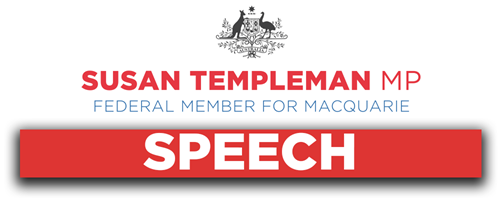
Early Childhood Education
It goes without saying that the Albanese government recognises the transformative benefits of early childhood education and care for both children and their families. I should say, 'It should go without saying,' but in this place we are still required to remind all members that it is a really transformative thing to do to have quality early childhood education. We know those first five years are vital. We know that on this side. We know the crossbench, by and large, appreciates that as well. We know that there are people in this place that do not hold that view. They are not listening to the science, but we are, and we are working to build a universal early childhood education and care system that is accessible to every family, no matter what their circumstances or background.
We've already taken some critical first steps, including to make early childhood education more affordable for more than a million families through our cheaper childcare reforms, but we know that there's more to do to provide long-term sustainable support to parents. I say to people who don't have children, don't think this is not relevant to you. I say to those people, early learning educators and teachers do an absolutely vital job—yes, for the families and the children involved—but they make it possible for millions of other Australians to do their jobs too. If you're a small business or a big business, your workers need to have access to quality affordable childcare.
The fact is, we're still not producing enough early educators or keeping enough of them in the system. Since coming to government, we've seen Australia's early childhood education and care sector grow by more than 30,000 workers, and that's because our government is working with the sector to develop and deliver practical solutions to retain staff while continuing to develop and strengthen recruitment and training pathways. We've already provided more university places for early childhood education teachers, and fee-free TAFE. We've helped deliver a 4.6 per cent pay rise from July 2022, a 5.75 per cent pay rise from July 2023, and a 3.7 per cent pay rise from July 2024. We've commissioned the ACCC and the Productivity Commission inquiry into the entire early childhood education and care system. We've also invested $72.4 million to support the skills and training of quality and sustainable early childhood education and care. Our workforce package is helping build skills and strengthen supply of qualified educators, including through supporting professional development opportunities and paid prac.
All of these things are key, and as the Productivity Commission states, we must prioritise the early learning workforce before any major reforms. That's why we've made an historic announcement for a 15 per cent wage increase for early childhood workers. This is a vital investment by the Albanese government to ensure high-quality early childhood educators remain in the sector, and to make it easy for educators to progress their careers. I want to see every eligible early learning educator in Macquarie receive that 15 per cent pay rise.
I am aware of the challenges that small not-for-profit or small private providers—both long-day care centres and OOSHs—are facing in the implementation of the increase. I was very pleased to host a roundtable discussion last week with departmental officials where directors and key executives of local centres could raise their issues and ask questions frankly. I'm also grateful for the support offered by the United Workers Union to assist these small centres. We haven't solved all the implementation issues yet, and I'll continue to work with local providers across the Blue Mountains, Hawkesbury and Emu Plains regions to get it right. While the 15 per cent increase is not the end of the improvements to conditions for early childhood workers, it's an interim step as other reforms take place. I don't want anyone to miss out on that $100-a-week increase before Christmas.
Overall we're talking about a 15 per cent pay rise over two years, starting in December this year—10 per cent initially, to increase by 15 a year later. The key thing for me is we want to see providers pass all that money onto the workers—that's who deserves it.


